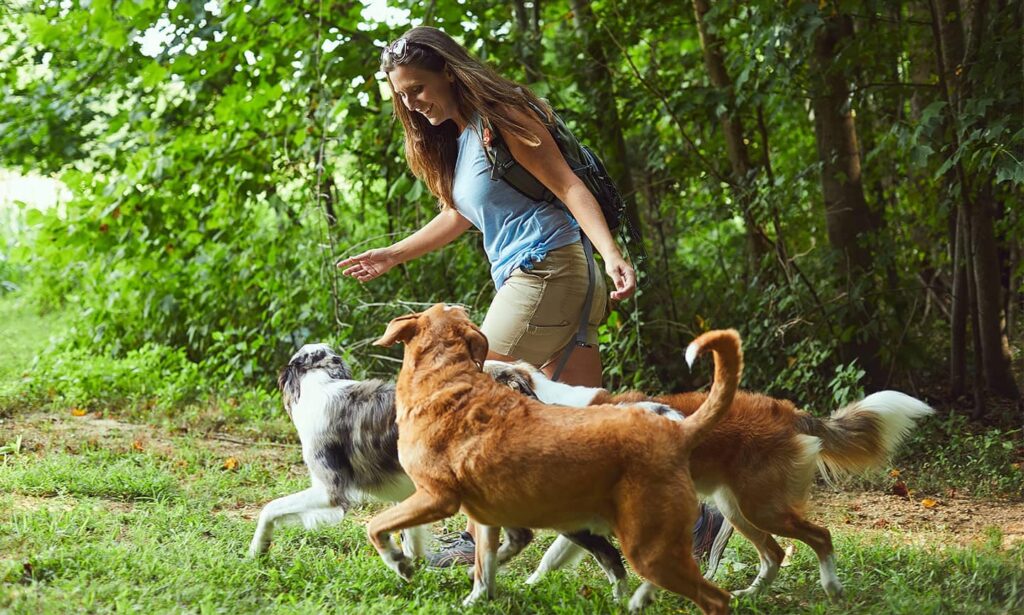
Dog Training Tips for Separation Anxiety: How to Help
Share
Separation anxiety in dogs is a common issue that can cause significant distress for both pets and their owners. As health-conscious pet owners, it is crucial to address this behavior not only for the emotional well-being of your dog but also to ensure their physical health is maintained. In this article, we will explore dog training tips for separation anxiety and provide a guide to help your furry friend feel more secure when they are alone.

Understanding Separation Anxiety in Dogs
Before delving into the training tips, it's essential to understand what separation anxiety is. It is a condition where a dog exhibits extreme distress when left alone. Symptoms can include excessive barking, destructive behavior, and even attempts to escape. These behaviors not only stress the dog but can also lead to injuries and other health issues.
Why Do Dogs Experience Separation Anxiety?
Several factors can contribute to separation anxiety in dogs. Changes in environment, such as moving to a new home, a change in family dynamics, or a traumatic event, can trigger anxiety. Additionally, some breeds are more prone to this condition due to their inherent need for companionship. Understanding the root cause can significantly aid in your approach to training.
Effective Dog Training Tips for Separation Anxiety
Addressing separation anxiety requires a combination of behavioral training, environmental adjustments, and sometimes professional intervention. Here are some dog training tips that can make a difference:
Create a Safe Space
Designate a specific area in your home where your dog feels safe and comfortable. This can be a quiet room or a cozy crate with their favorite toys and blankets. Ensure this space is associated with positive experiences to help your dog feel secure when you're not around.
Gradual Desensitization
This method involves slowly getting your dog used to being alone for short periods and gradually increasing the duration. Start by leaving the room for a few minutes and then returning. Gradually extend the time you are away, ensuring your dog remains calm before increasing the duration further.
Maintain a Consistent Routine
Dogs thrive on routine. Keeping a consistent schedule for feeding, walks, and playtime can help reduce anxiety. Consistency provides a sense of predictability, which can be reassuring for your pet.
Additional Strategies to Alleviate Anxiety
Beyond training, there are other strategies you can employ to help your dog cope with separation anxiety. Expert tips for dog training can offer more insights on this subject.
Exercise and Mental Stimulation
Regular physical exercise and mental stimulation are crucial for a dog's overall health and can significantly reduce anxiety levels. Activities like puzzle toys, interactive games, and obedience training sessions can keep your dog mentally engaged and physically tired, reducing their stress levels.
Consider Professional Help
If your dog's anxiety is severe, seeking the help of a professional trainer or a veterinary behaviorist might be necessary. Professionals can provide tailored strategies and, if needed, recommend medication to help manage anxiety.
For more detailed training methods, you might want to explore dog training guide.
Conclusion: Patience and Consistency are Key
Overcoming separation anxiety in dogs requires patience, consistency, and understanding. It's a gradual process, but with the right approach, you can help your dog feel more secure and comfortable when left alone. Remember, every dog is unique, and what works for one might not work for another. Be patient and willing to try different strategies until you find what works best for your pet.
For more tips on dog behavior, check out dog training tips for aggression and dog training tips for beginners.

FAQ: Common Questions About Dog Separation Anxiety
How long does it take to train a dog with separation anxiety?
The time it takes can vary depending on the severity of the anxiety and the consistency of the training. It can take several weeks to a few months for noticeable improvement.
Can all dogs develop separation anxiety?
While any dog can develop separation anxiety, it is more common in dogs that have experienced significant changes or trauma. Certain breeds are also more prone to this condition.
Is medication necessary for treating separation anxiety?
Medication is not always necessary and should be considered only under the guidance of a veterinarian. It can be helpful in severe cases but should be combined with behavioral training.
This article contains affiliate links. We may earn a commission at no extra cost to you.
